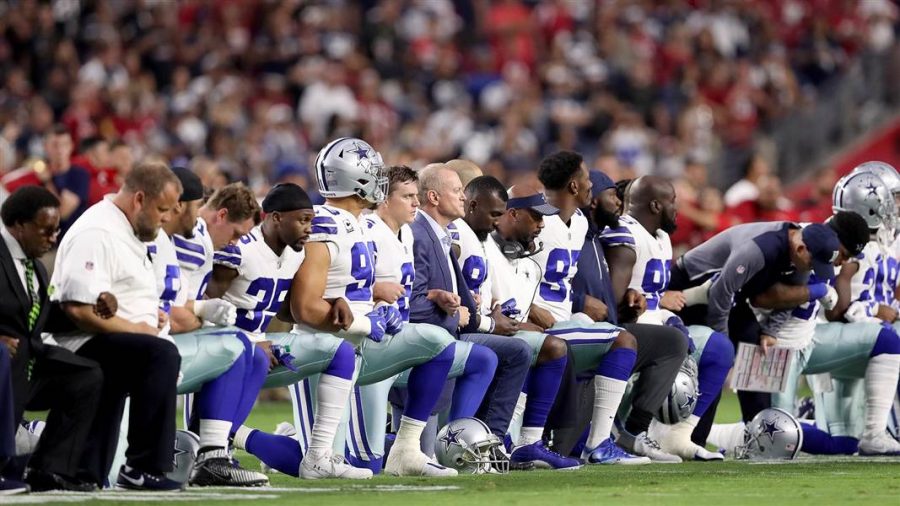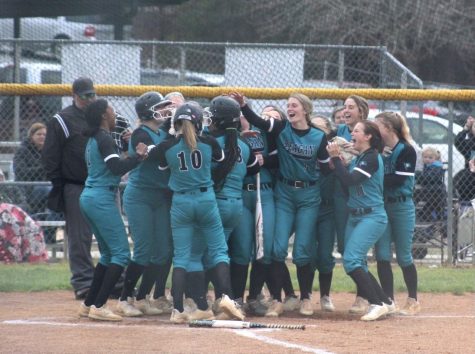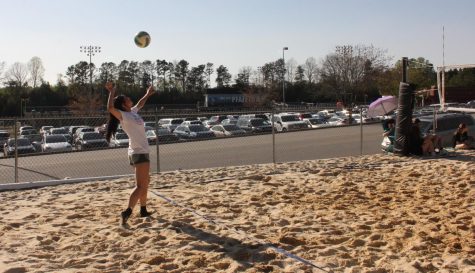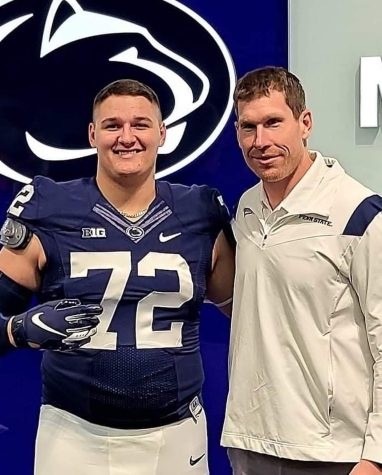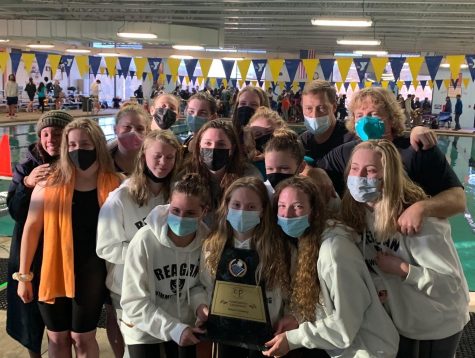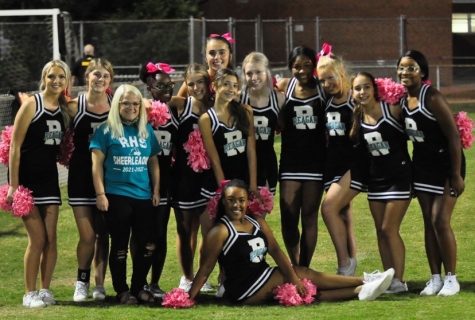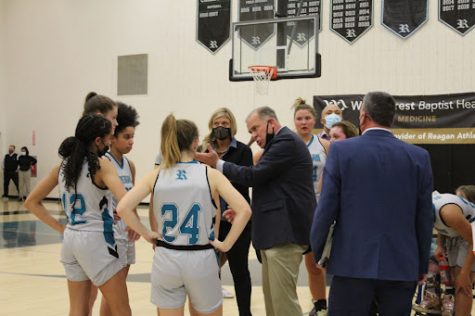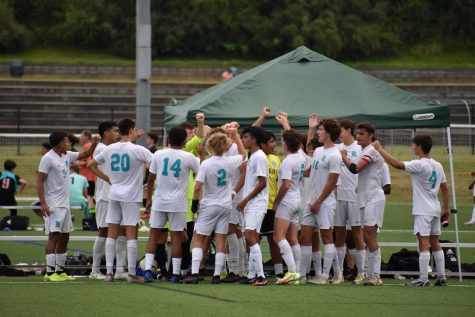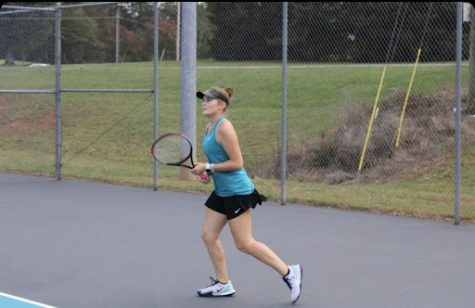Taking a knee: controversy in the NFL
Football players are taking a stand against discrimination and racism on the field. This decision is being met with heavy criticism.
Dallas Cowboys owner Jerry Jones takes a knee during the National Anthem with his team Monday, September 25.
October 19, 2017
Recently, numerous football players in the NFL have been taking a knee during the singing of the national anthem as a form of protest. This trend started when Colin Kaepernick, the San Francisco 49ers quarterback, remained seated during the National Anthem. He intended to make a statement about police brutality, such as shootings and overly aggressive arrests, and oppression of African-American people in the United States.
“I am not going to stand up to show pride in a flag for a country that oppresses black people and people of color,” Kaepernick said to NFL.com.
The protest has gained momentum in multiple sports in addition to football, and across teams. As the practice has become more prevalent, it has received more and more criticism and has most recently culminated in an explicit remark from President Donald Trump when discussing patriotism and his belief that players who kneel should be dismissed by their employers.
“Get that son of a b**** off the field,” Trump said at a rally in Huntsville, Alabama. “He’s fired.”
As the discussion about whether or not players are entitled to this expression of their opinion continues, the impact spreads to high school sports. Parkway High School in Louisiana has declared that players who take a knee during the national anthem will be benched, and with repeated offense be removed from the team.
A letter from Parkway’s principal, Waylon Bates, was released to the media after it was sent home to parents Sept. 28.
“Parkway High School requires student athletes to stand in a respectful manner throughout the National Anthem during any sporting event in which their team is participating,” Bates wrote. “Failure to comply will result in loss of playing time and/or participation as directed by the head coach and principal. Continued failure to comply will result in removal from the team.”
Instead of giving ultimatums and threats, this protest should increase communication between coaches and student athletes concerning views. Different students and coaches will have their own individual perceptions and opinions.
“It’s important that students can speak their minds and have the freedom to do that,” said freshman and JV field hockey player Maddie Burgiss.
Other students agree with Burgiss.
“I think they’re doing it for a great cause,” said junior Nathan Selbach. “The racial inequality in America is getting out of hand these days.”
As is the case with every controversial issue, there are strong opposing opinions as well.
“I think it’s stupid,” said sophomore C.J. Hill. “They need to show respect for their country and the people giving up their lives for it.”
Athletes are under a spotlight when they walk out onto the field, and not just the Friday night lights. Their actions are watched and scrutinized, before, during, and after playing.
“They get a great opportunity to play professional sports,” Hill said. “They shouldn’t waste it.”

